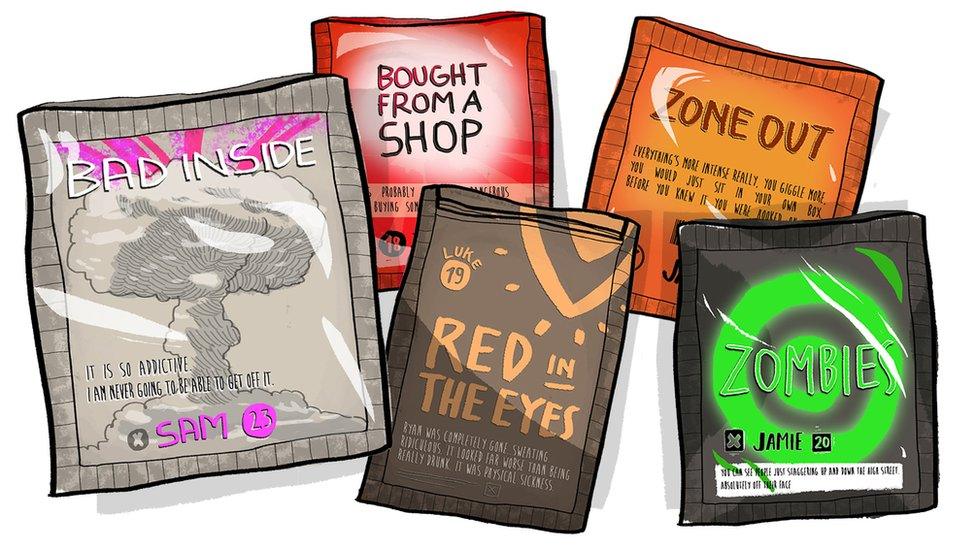Ban on legal highs has 'significant effect' in Scotland
- Published
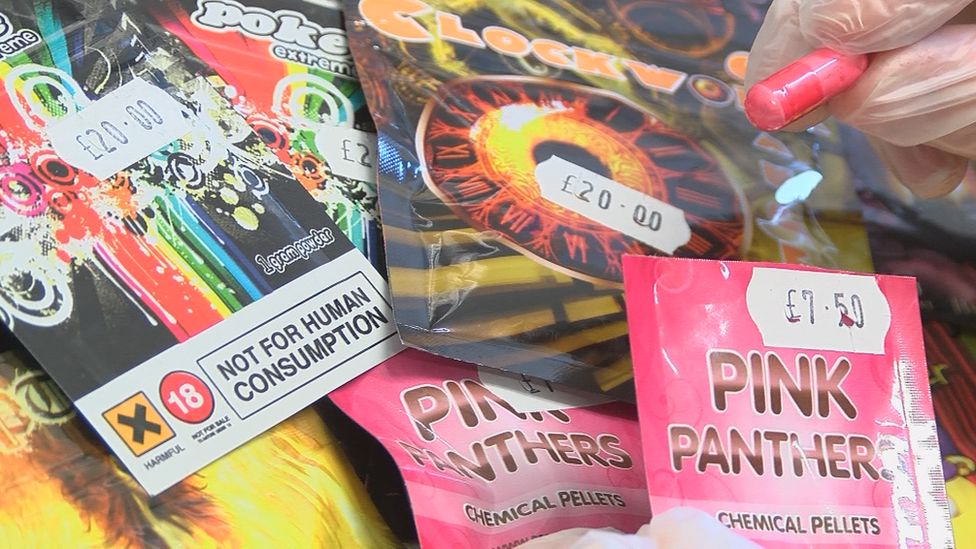
A ban on so-called legal highs came into force in May
New legislation introduced three months ago banning so-called legal highs has had a significant effect, Police Scotland has said.
At one time the force said 90 retailers across Scotland were selling the new psychoative substances (NPS), including newsagents and furniture shops.
But after the law changed in May, none was found to be selling them openly.
However, the force said it was aware that there continued to be an illegal and secret market.
A spokesman said officers would "robustly pursue" individuals involved, although so far there have been no prosecutions in Scotland.
In England and Wales, almost 200 people have been arrested and hundreds of shops shut down or prevented from selling so-called legal highs.
'Lives lost'
Police Scotland's Deputy Chief Constable Ruaraidh Nicolson said: "During the course of our investigation into NPS, Operation Redwall, we identified a peak of over 90 retailers who were involved/suspected to be involved in the overt sale of NPS across Scotland.
"This ranged from 'headshops' selling NPS as one of the mainstays of their business, to premises like newsagents and even furniture shops who were selling these substances as an ancillary item.
"Police Scotland visited each of these retailers who were trading one week prior to the new legislation being introduced and delivered educational letters to the owners.
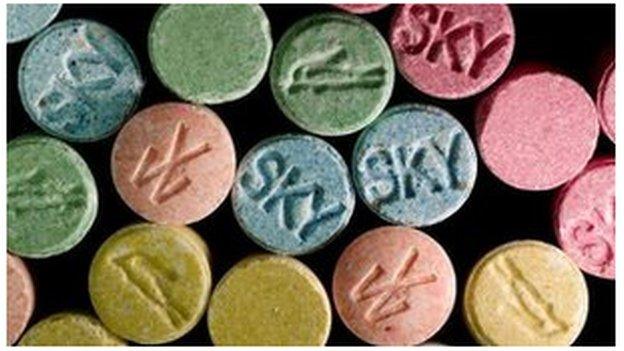
"At this time we identified a total of five premises across Scotland who were still overtly selling NPS. On a return visit, one week post legislation, our officers found that none of these premises continued to openly sell NPS."
He added: "Whilst the new legislation has undoubtedly been instrumental in this change in the market place, Police Scotland is aware that certain individuals and retailers continue to illegally and secretly supply these substances and we will robustly pursue such individuals and businesses and report their criminal activities where appropriate."
In 2014 alone, new psychoactive substances were implicated in, or potentially contributed to, 62 deaths in Scotland.
'Reckless trade'
Across the UK, they were involved in the deaths of 144 people, up from 31 deaths in 2010. Since 2010, there have been a total of 444 deaths involving new psychoactive substances.
Scotland's Public Health minister Aileen Campbell said: "Making NPS unlawful, less visible and less available will help reduce the risk posed by these dangerous substances and we have worked closely with the Home Office on this new legislation to control the sale and supply of NPS both here in Scotland and around the rest of the UK.
"This new legislation provides Police Scotland and other law enforcement partners with increased powers to tackle those who produce and sell psychoactive substances and I am very pleased to see action being taken to remove them from retailers around the country."
Sarah Newton, the UK minister for safeguarding, vulnerability and countering extremism, said: "These dangerous drugs have already cost far too many Scottish lives. I am delighted to see so many retailers denied the chance to profit from this reckless trade.
"The Psychoactive Substances Act is sending out a clear message - this government will take whatever action is necessary to keep our families and communities safe. These drugs are not legal, they are not safe and we will not allow them to be sold in this country."
The National Crime Agency has shut down websites found to be in breach of the ban and is working with international partners to address those websites based overseas.
Commander Simon Bray, National Police Chiefs' Council lead for psychoactive substances, said: "The significant reduction in the number of headshops and retailers stocking psychoactive substances in just three months demonstrates the hard work of officers across the country in getting these harmful drugs off the market."
Offenders can face up to seven years in prison under the Psychoactive Substances Act, which criminalises the production, distribution, sale and supply of the drugs.
- Published26 May 2016
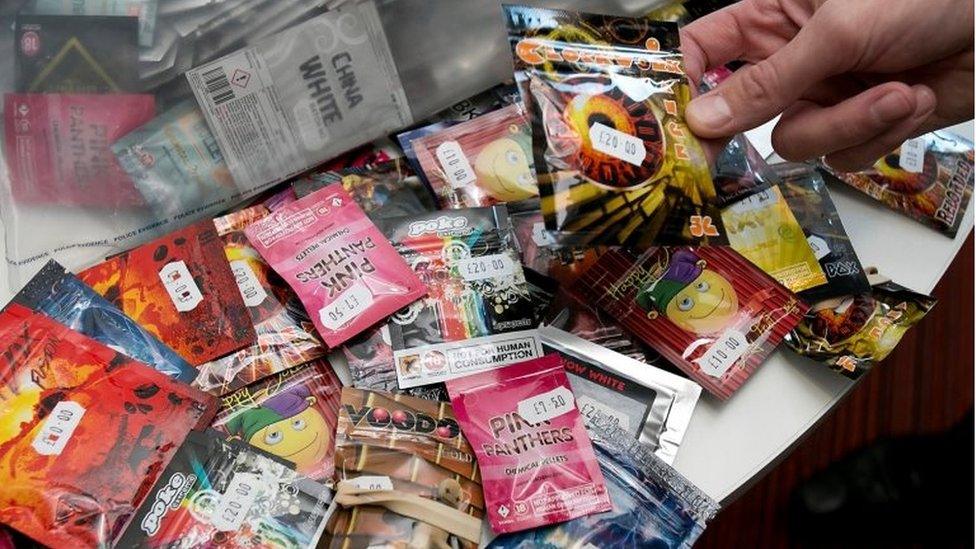
- Published26 May 2016
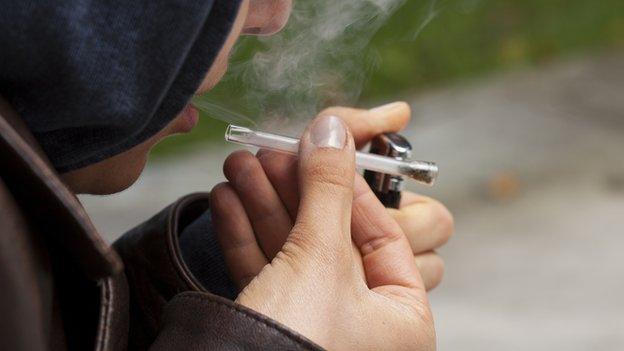
- Published13 May 2016
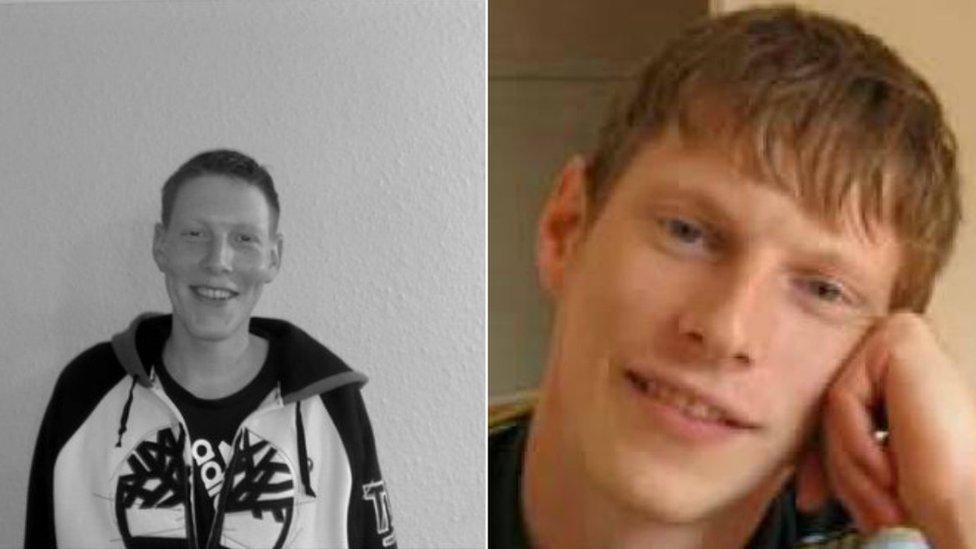
- Published14 April 2016
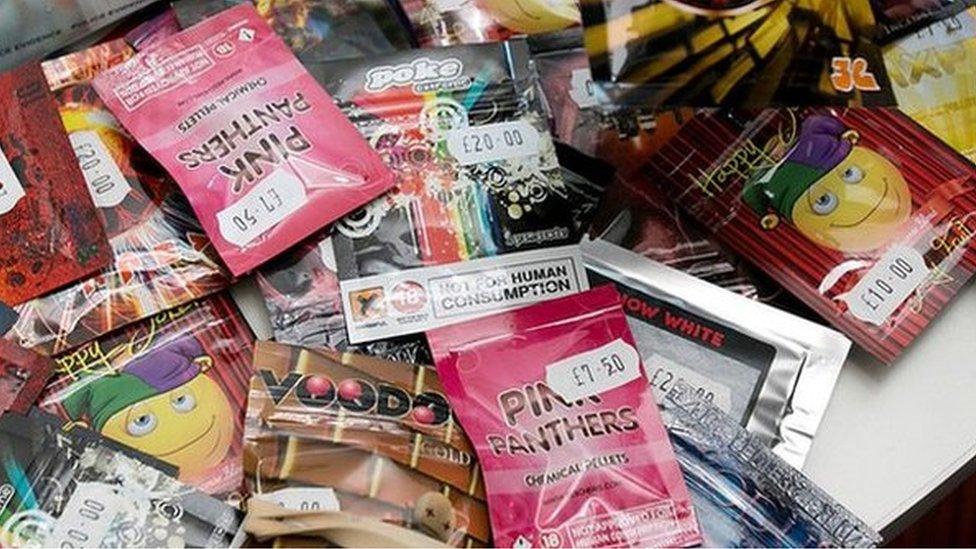
- Published27 May 2015
